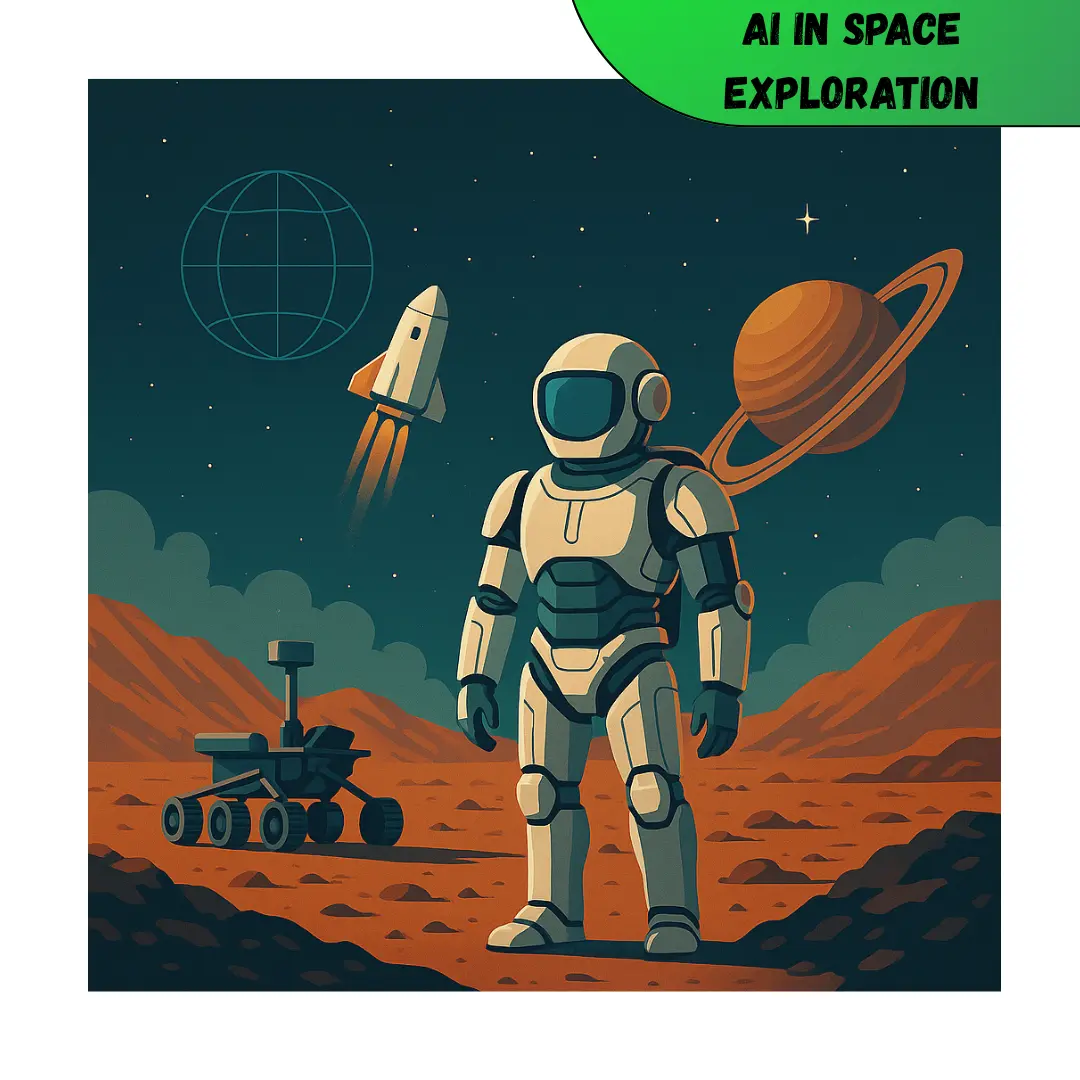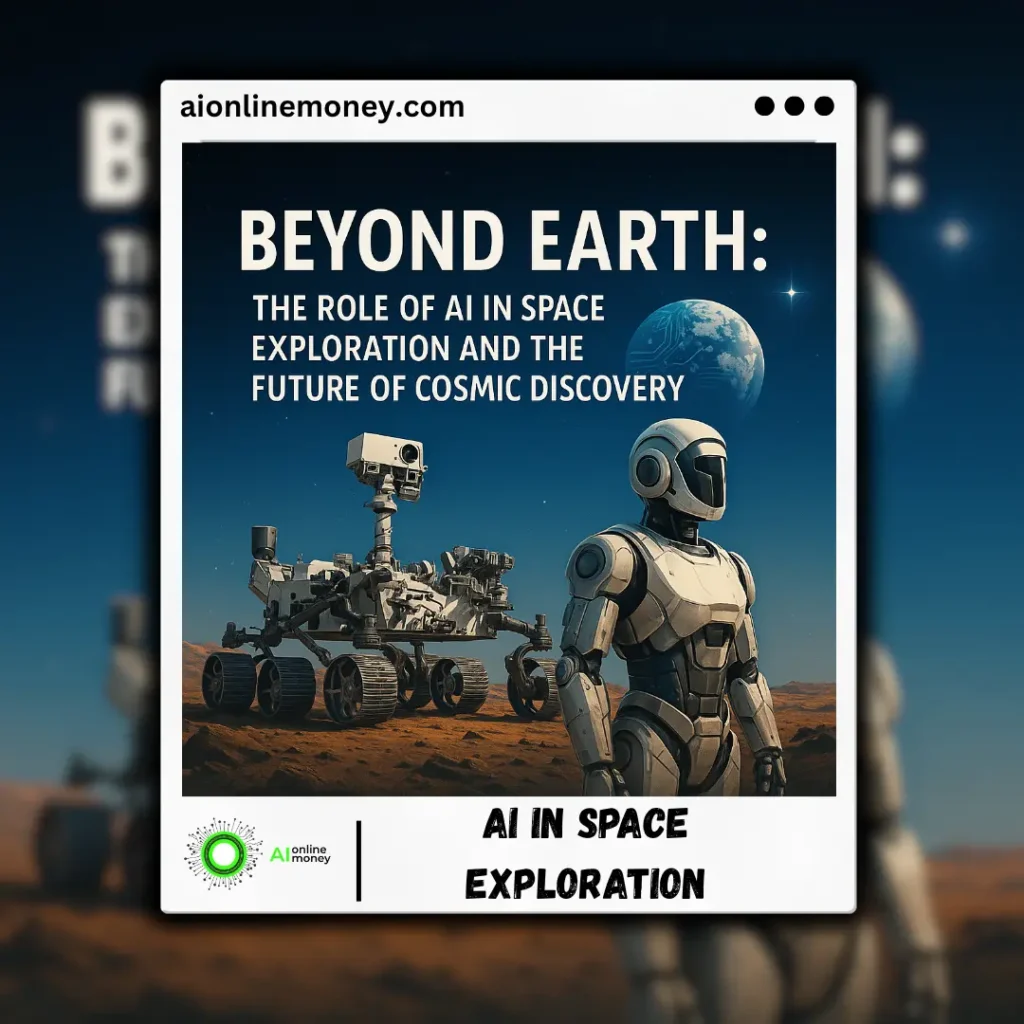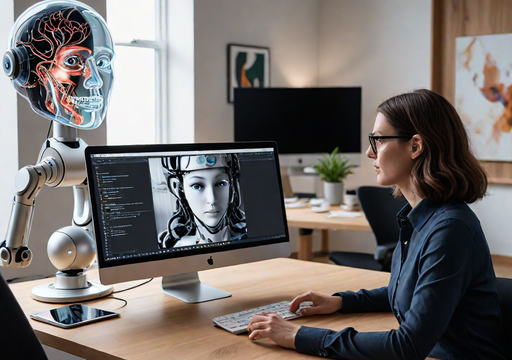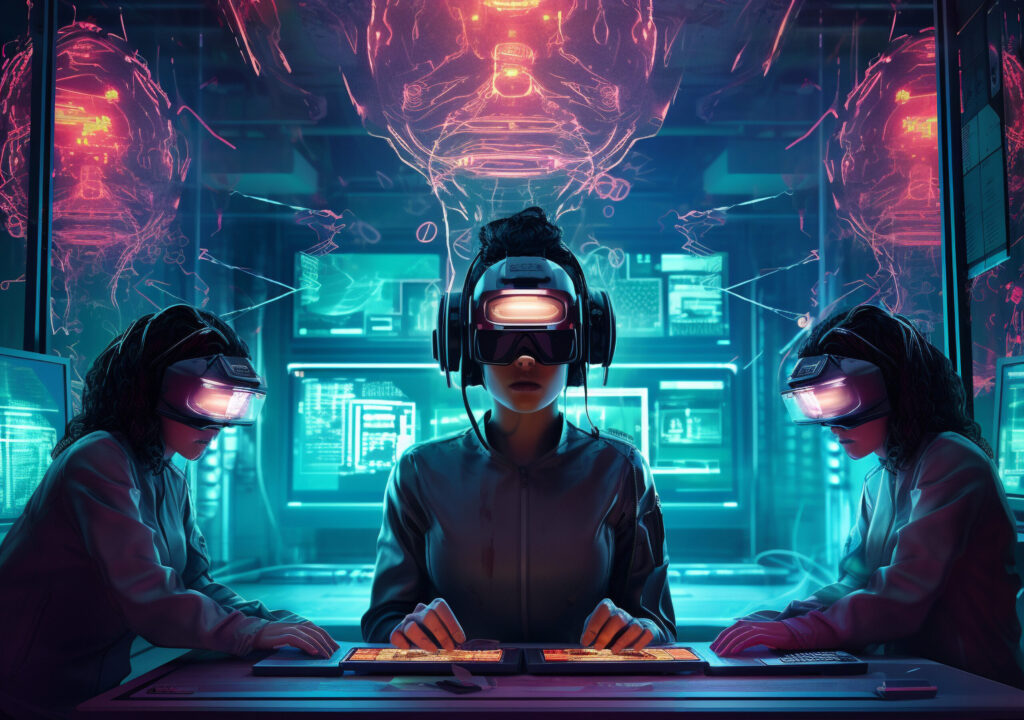Table of Contents
What do you think about landing on Mars with the help of AI? Did you know that AI helped robots land on Mars? It’s like AI has already done everything here on Earth, and now it wants to explore space too! Can you believe it? AI in space exploration. So what do you think? How is AI used in space exploration? Let’s explore the future of space
I heard that AI helped a robot land on the dangerous surface of Mars, and it did so without waiting for any instructions from Earth. It landed all by itself, thanks to AI. After hearing this, it feels like AI has become crucial for space exploration.
Since space missions take a lot of time and come with complications along the way, the chances of success are often low. But this is where AI seems to be playing a very significant role. With the help of AI, we can achieve a lot in space exploration, like controlling spacecraft, studying data from distant planets, and helping humans make quicker decisions.
AI in space exploration isn’t sci-fi anymore; it’s solid reality. This is the future of space. From helping rovers make landing decisions to analyzing data faster than any human possibly could, AI in space exploration is slowly becoming the astronauts’ behind-the-scenes best friend. It doesn’t need oxygen, doesn’t complain, and works 24×7. Data analysis? Check. Mission planning? Yup. Emergency handling? AI is like, “I got this.”
In short, AI has officially entered the space, and just think about it, AI in space exploration is the future of space.
How Is AI Used in Space Exploration Today?
Artificial intelligence, or AI in space exploration plays a very important role in the future of space exploration. AI is helping scientists and astronauts in space exploration, and with the help of AI in space exploration it has become a safer and more effective way.
So, how is AI used in space exploration? Use AI in space exploration? Used out there in space? One of the best examples is NASA’s (National Aeronautics and Space Administration) Perseverance rover on Mars. It takes NASA’s Perseverance rover, for example. It’s not just rolling around Mars for study, and the data that we want from Mars. It uses AI in space exploration for autonomous navigation, which means no one’s holding a joystick from Earth. The rover itself decides where to go, how to avoid rocks, and which route is best and safest to select on its own. This is a benefit of AI in space exploration.
Then there’s the satellite data analysis. Picture this: hundreds of satellites sending massive chunks of images and numbers every second. Humans can’t go through all that without losing their minds. But AI in space exploration, It scans, sorts, finds patterns, and even predicts stuff, like possible asteroid threats or climate changes, faster than you can say “launch.” it is we know how is AI used in space exploration. The future of space with Artificial Intelligence is being.
On the International Space Station (ISS), AI in space exploration helps monitor life support systems and even assists astronauts with tasks. Like a super-smart Siri, but floating in zero gravity.
Also, mission planning is now smarter. How is AI used in space exploration? It’s simple, AI runs simulations, manages fuel estimates, and even predicts how systems might fail, before they fail.
Now we just know about how is AI used in space exploration.
Europe’s AI Space Race with NASA:- ESA (European Space Agency)
Most of us hear “space” and think “NASA.” But wait, Europe’s ESA (European Space Agency) is making serious ESA AI moves too, quietly but powerfully.
ESA’s Copernicus mission uses ESA AI to keep monitoring Earth, follow climate changes, sea level rise, and even alert us about forest fires before they go wild, and it’s too late. Imagine satellites acting like jumbo CCTV cameras, but with AI brains that can spot changes before we even notice them. So, what do you think about Esa AI?
They’re also planning to give future Mars rovers autonomy, meaning these little robots will be able to explore new terrains without needing constant instructions from Earth. Giving them brains of their own, kind of scary-cool, right?
And let’s not forget space junk. Earth’s orbit is filled with old satellites and debris zipping around like high-speed bullets. ESA AI is working on AI in space exploration that can track this chaos, predict collisions, and maybe even guide clean-up bots in the future.
So yeah, it’s not just NASA. ESA’s out here, quietly being the brainy cousin in the global space race.

NASA and Artificial Intelligence: The Smartest Partnership in the Galaxy:
So, how is AI used in space exploration with the help of NASA (National Aeronautics and Space Administration) smart partnership with artificial intelligence that gives more positive benefits than it does now. Just imagine exploring the galaxy with artificial intelligence means more data, more space exploration, and maybe we will find alien spaces as well. NASA and AI can help us explore the universe that we once were just imagining or only knew the theoretical part. Artificial intelligence is involved in everything.
National Aeronautics and Space Administration’s (NASA) Jet Propulsion Laboratory (JPL) uses machine learning—a type of Artificial intelligence that studies planets, improves rover navigation, and analyzes large amounts of scientific data. Just like identifying patterns in star behavior, playing intergalactic Google Maps, and so much.
Now here’s the plot twist, NASA’s not doing this solo. Some pretty big-name companies are tagging along:
IBM lends its AI brains for space research and analysis.
Intel helps NASA train machine learning models faster than your Wi-Fi loads Netflix.
Lockheed Martin? Think of them as NASA’s hardware BFFs.
And even SpaceX, while doing its own thing, is kind of like that younger cousin showing off their tech, and yes, NASA sometimes borrows.
In short, NASA + AI + big-tech = a space squad so elite, even aliens would be impressed. And they’re not just looking for life out there, they’re redefining life with AI. They also see how is AI used in space exploration and make it better. This is a combination of NASA and ai that gives us a map of our future of space that is imaginary in our mind.
The future of space with AI in Space Exploration: Smarter, Bolder, further:
How is AI used in space exploration will change the way we see our universe. So, what’s next? Flying robots with emotions? AI love stories on Mars? Well, not quite. But still pretty mind-blowing:
1. Fully Autonomous Space Stations
We’re talking about space stations that don’t need a human crew at all, just AI systems running research, maintenance, and possibly brewing chai. (Okay, maybe not the chai.)
2. AI Astronauts
Humanoid robots like ISRO’s Vyommitra are already being trained to work in zero-gravity and assist human astronauts. In the future of space, AI astronauts might explore dangerous terrains while humans chill in the mothership.
3. Finding New Worlds
With AI in space exploration scanning data from deep space telescopes, we might finally discover planets that could support life. Imagine finding an Earth 2.0, all thanks to an algorithm.
Challenges and Cosmic Curveballs
You can’t reboot a Mars Rover: If something goes wrong, you can’t just press Ctrl+Alt+Delete. AI systems need to be super reliable when they’re lightyears away.
Ethical Dilemmas: Should AI make life-or-death decisions? Should it control entire missions? These questions are very important.
Unknown Unknowns: AI is trained on data we already have. But what if something brand new pops up on Jupiter’s moon? Artificial intelligence might just go, “Uhhh…” So,How is AI used in space exploration can be work.
Still, the potential outweighs the problems. We’re learning. Fast.
Conclusion: To Infinity, With Intelligence
We don’t know how is AI used in space exploration in the future, maybe we can also control the spacecraft through our mobile phone, just like we normally use our phone or play games on our phone.
Let’s face it, Artificial intelligence and space are like peanut butter and jelly. One’s smart, the other’s wild, and together they’re exploring the universe in ways we only dreamed of.
AI isn’t stealing the spotlight from astronauts. It’s just making sure their missions are safer, smarter, and way cooler. From dusty Martian landings to climate-watching satellites, AI is everywhere. Quietly working behind the scenes, like the nerdy genius of the space gang. So, what do you think about or what is in your mind right now, about the future of space with AI?
If you like this Blog, Read AI related latest Blogs and News at only AiOnlineMoney.



